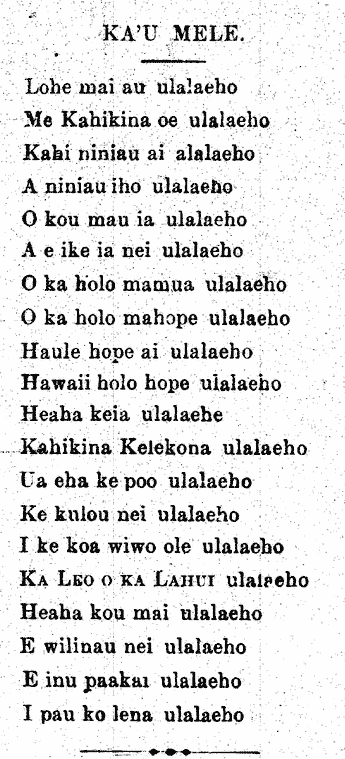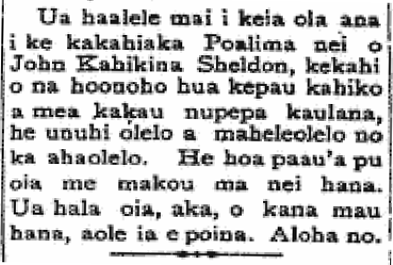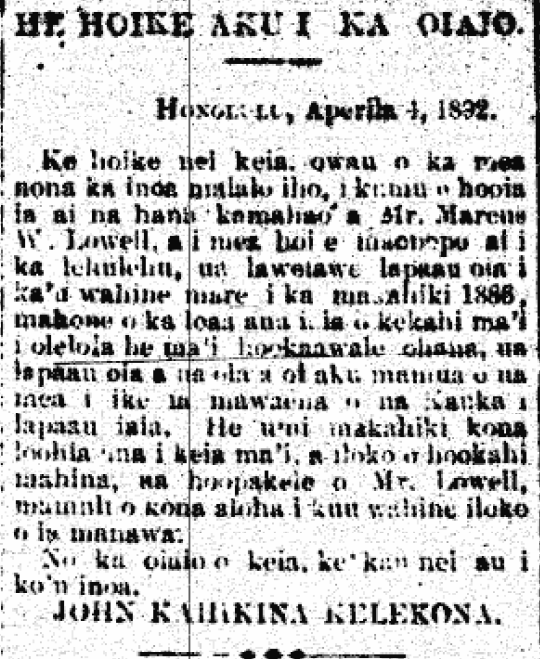KE KUOKOA PUKA LA.
He malihini hoi keia,
E auwana hele ae nei,
Aihemu manienie,
Ai uhini o ka nahele.
O ke ano iho la no ia,
Malimali i kinohou,
A ku ae i ka moku,
Ko-we-iu-Kanaka.
O ko lakou ano iho la ia,
O hoolilo aina ma,
Mai punihei aku,
I ka mali hoohui aina.
[The Daily Kuokoa Newspaper¹
This is a newcomer
Wandering about
Devouring until barren
Eater of grasshoppers in the wilderness.
That’s its nature
Sweet words at first
Then taking rule of the land
“Go away you Kanaka.”
That is how they are
Those who will turn over the land
Don’t get tricked
By the sweet-talking annexationists.
¹Nupepa Puka La Kuokoa me Ko Hawaii Pae Aina i Huiia was a daily pro-annexation Hawaiian-Language newspaper that ran from 1/26/1893 through 1896.
KA’U MELE.
Pehea la e hiki ai,
Ia’u ke uumi iho,
I ko’u aloha e ka aina hanau,
Nau wau i hoohua mai.
O kou kuakoko no’u ia,
Eha oe, no’u ia eha,
Mailani oe ia’u, he milimili,
I ole ai kakou, ma o ka Haku.
E ka Haku—e—Puuhonua,
Kalahea o ko ke ao nei,
Ina ua hewa au, ke noi nei au,
Ma Ou ‘la, e ola au.
Kahikina Kelekona.
[My Song
How would it be possible
For me to hold back
My aloha, O Land of my birth,
You gave birth to me.
Your birth pangs are for me
When you are pained, those pains are for me
You treasure me, as something dear
We live through the Lord.
O Lord, O Refuge
Redeemer of this world
If I am wrong, I beseech
Through You, let me live.
Kahikina Kelekona.]
(Hawaii Holomua, 1/25/1893, p. 2)








